Nori Human TGFb2 ELISA Kit
$461.00 – $832.00
This ELISA kit is for quantification of TGFb2 in human. This is a quick ELISA assay that reduces time to 50% compared to the conventional method, and the entire assay only takes 3 hours. This assay employs the quantitative sandwich enzyme immunoassay technique and uses biotin-streptavidin chemistry to improve the performance of the assays. An antibody specific for TGFb2 has been pre-coated onto a microplate. Standards and samples are pipetted into the wells and any TGFb2 present is bound by the immobilized antibody. After washing away any unbound substances, a detection antibody specific for TGFb2 is added to the wells. Following wash to remove any unbound antibody reagent, a detection reagent is added. After intensive wash a substrate solution is added to the wells and color develops in proportion to the amount of TGFb2 bound in the initial step. The color development is stopped, and the intensity of the color is measured.
Alternative names for TGFb2: Transforming growth factor-beta 2, glioblastoma-derived T-cell suppressor factor, G-TSF, BSC-1 cell growth inhibitor, Polyergin, Cetermin
This product is for Laboratory Research Use Only not for diagnostic and therapeutic purposes or any other purposes.
- Description
- How Elisa Works
- Product Citation (0)
- Reviews (0)
Description
Nori Human TGFb2 ELISA Kit Summary
Alternative names for TGFb2: Transforming growth factor-beta 2, glioblastoma-derived T-cell suppressor factor, G-TSF, BSC-1 cell growth inhibitor, Polyergin, Cetermin
| Assay Type | Solid Phase Sandwich ELISA |
| Format | 96-well Microplate or 96-Well Strip Microplate |
| Method of Detection | Colorimetric |
| Number of Targets Detected | 1 |
| Target Antiben Accession Number | P61812 |
| Assay Length | 3 hours |
| Quantitative/Semiquantitative | Quantitative |
| Sample Type | Plasma, Serum, Cell Culture, Urine, Cell/Tissue Lysates, Synovial Fluid, BAL, |
| Recommended Sample Dilution (Plasma/Serum) | No dilution for sample <ULOQ; sufficient dilution for samples >ULOQ |
| Sensitivity | 6 pg/mL |
| Detection Range | 35-2200 pg/mL |
| Specificity | Human TGFb2 |
| Cross-Reactivity | < 0.5% cross-reactivity observed with available related molecules, < 50% cross-species reactivity observed with species tested. |
| Interference | No significant interference observed with available related molecules |
| Storage/Stability | 4 ºC for up to 6 months |
| Usage | For Laboratory Research Use Only. Not for diagnostic or therapeutic use. |
| Additional Notes | The kit allows for use in multiple experiments. |
Standard Curve
Kit Components
1. Pre-coated 96-well Microplate
2. Biotinylated Detection Antibody
3. Streptavidin-HRP Conjugate
4. Lyophilized Standards
5. TMB One-Step Substrate
6. Stop Solution
7. 20 x PBS
8. Assay Buffer
Other Materials Required but not Provided:
1. Microplate Reader capable of measuring absorption at 450 nm
2. Log-log graph paper or computer and software for ELISA data analysis
3. Precision pipettes (1-1000 µl)
4. Multi-channel pipettes (300 µl)
5. Distilled or deionized water
Protocol Outline
1. Prepare all reagents, samples and standards as instructed in the datasheet.
2. Add 100 µl of Standard or samples to each well and incubate 1 h at RT.
3. Add 100 µl of Working Detection Antibody to each well and incubate 1 h at RT.
4. Add 100 µl of Working Streptavidin-HRP to each well and incubate 20 min at RT.
5. Add 100 µl of Substrate to each well and incubate 5-30 min at RT.
6. Add 50 µl of Stop Solution to each well and read at 450 nm immediately.
Background:
TGF-β2 (Transforming growth factor-beta 2) is a secreted protein known as a cytokine that performs many cellular functions and has a vital role during embryonic development (alternative names: Glioblastoma-derived T-cell suppressor factor, G-TSF, BSC-1 cell growth inhibitor, Polyergin, Cetermin). It is an extracellular glycosylated protein. It is known to suppress the effects of interleukin dependent T-cell tumors. TGFB1, TGFB2, and TGFB3 all function through the same receptor signaling systems. They are members of the large TGFβ superfamily. TGFβ proteins are highly pleiotropic cytokines that regulate processes such as immune function, proliferation and epithelialmesenchymal transition (1-3). TGFβ activation from latency is controlled both spatially and temporally, by multiple pathways that include actions of proteases such as plasmin and MMP9, and/or by thrombospondin 1 or selected integrins (4). The active form of TGFβ2 is a disulfidelinked homodimer which is generated by activation of the latent TGFβ2 complex. TGFβs are multifunctional cytokines that activate or repress multiple genes in a wide variety of cell types. Depending on the cell context, TGFβ can control many cellular processes including growth, morphogenesis, and apoptosis.
References
- Dunker, N. and K. Krieglstein (2000) Eur. J. Biochem.267:6982.
- Wahl, S.M. (2006) Immunol. Rev. 213:213.
- Chang, H. et al. (2002) Endocr. Rev. 23:787.
- Oklu, R. and R. Hesketh (2000) Biochem. J. 352:601.
Be the first to review “Nori Human TGFb2 ELISA Kit”
You must be logged in to post a review.
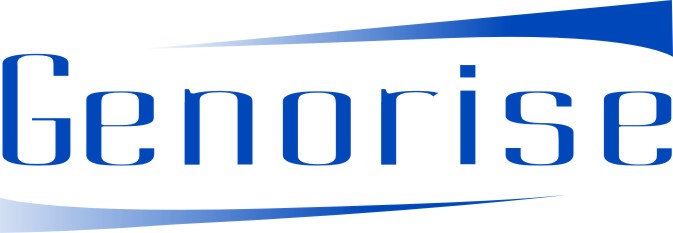






















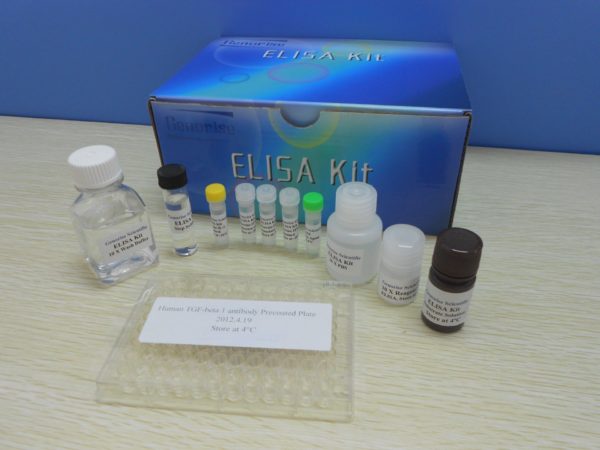
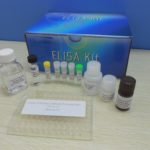
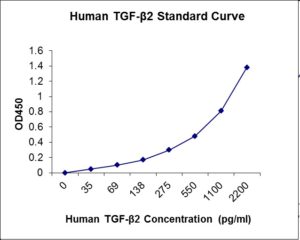
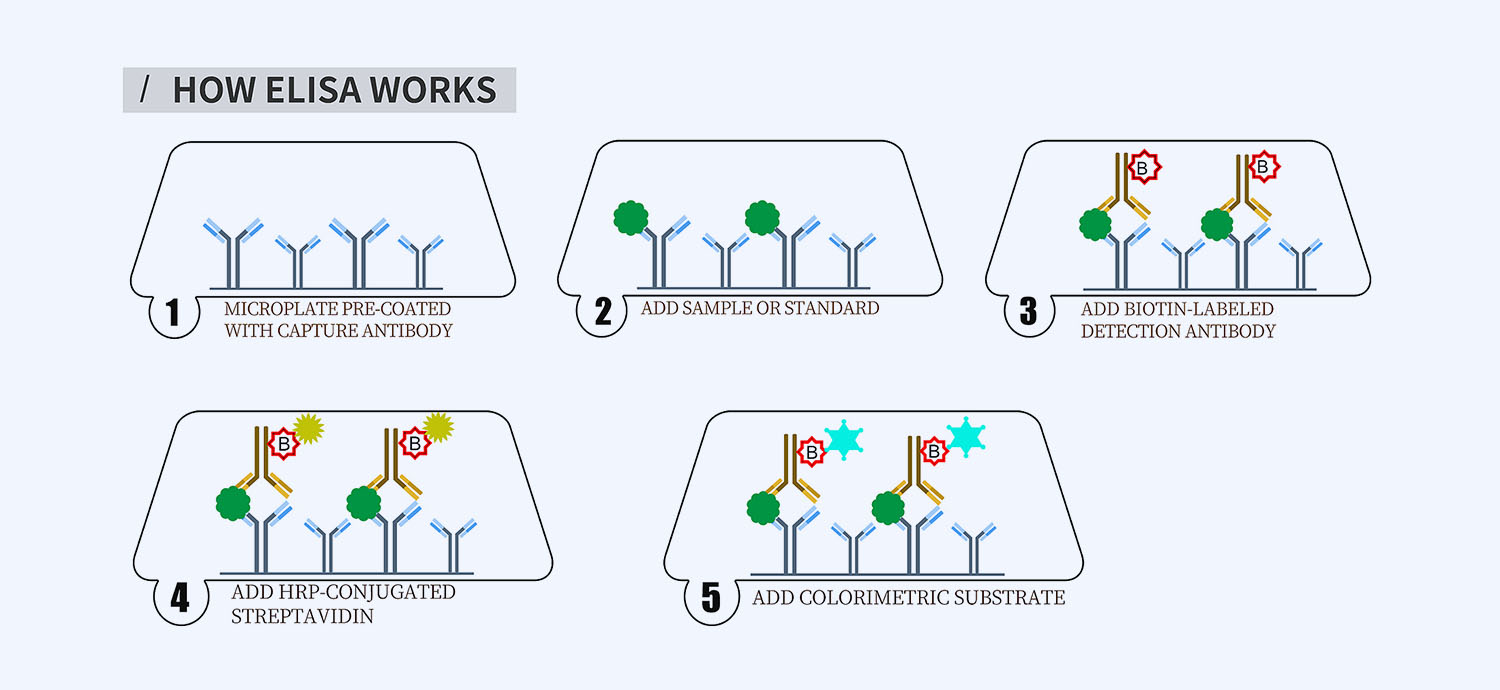
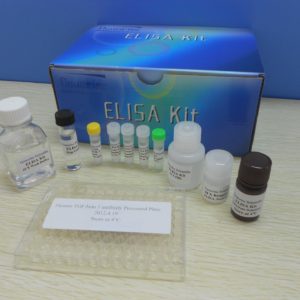
Reviews
There are no reviews yet.